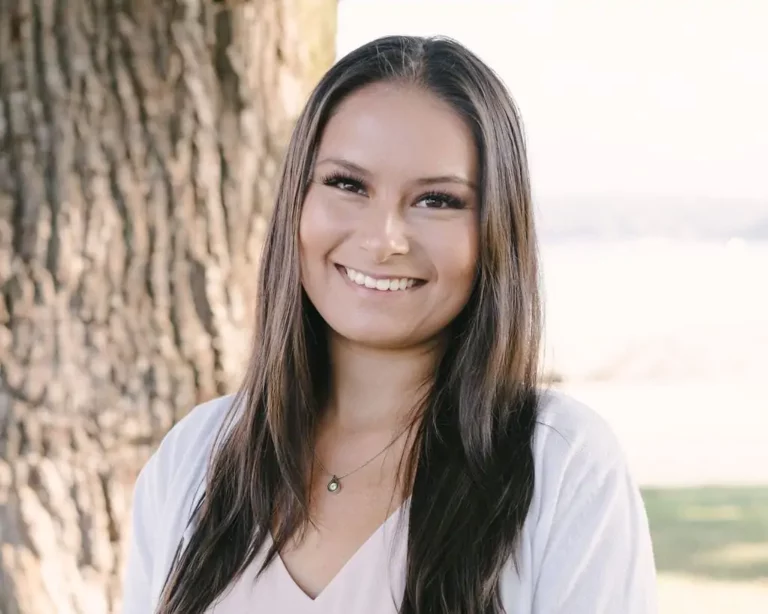Mindfulness Therapy Vancouver
Counselling with a Mindful Approach
The mind is always moving: worrying about the future, replaying the past, judging, analyzing, reacting. While this is part of being human, it can also leave us feeling disconnected, anxious, or overwhelmed. Mindfulness offers a different way of relating to your experience: with awareness, gentleness, and presence.
At ARC, we don’t treat mindfulness as a rigid practice or one-size-fits-all solution. Instead, we integrate mindfulness as a flexible tool to help you slow down, build awareness, and reconnect with yourself – moment by moment.
Are you feeling caught in your own head?
When life feels rushed, overwhelming, or emotionally intense, it’s easy to lose connection with your body, your needs, or your present moment experience. Mindfulness can help you return to yourself with more steadiness and care.
You may benefit from mindfulness-based therapy if you:
- Get stuck in cycles of overthinking or worry
- Feel disconnected from your body or emotions
- Often react quickly and regret it afterward
- Struggle with anxiety, stress, or perfectionism
- Feel like you’re going through life on autopilot
- Have difficulty staying present in relationships or daily life
Mindfulness isn’t about clearing your mind or always feeling calm. It’s about becoming more aware of what’s happening inside and around you, so you can respond with more clarity and choice.
How mindfulness supports therapy
Mindfulness is the foundation of emotional awareness and change. It allows you to notice your inner experience without being overwhelmed or pulled into reactivity. At ARC, we weave mindfulness into therapy sessions to help you deepen insight, regulate emotions, and create space for healing.
Your ARC therapist may support you to:
- Learn grounding techniques to steady your nervous system
- Notice emotions, thoughts, and body sensations as they arise
- Stay connected to the present, even during difficult conversations
- Build tolerance for discomfort or uncertainty
- Explore patterns with curiosity rather than judgment
- Slow down enough to make intentional, values-aligned choices
Mindfulness isn’t a goal – it’s a practice of gently coming back to yourself, again and again.
Let's practice mindfulness together
Mindfulness can be a powerful support for healing, but it doesn’t require silence, stillness, or perfection. It simply asks for your attention, and offers you the chance to respond with more care, awareness, and choice.
At ARC, our therapists integrate mindfulness in a grounded, compassionate way that meets you where you are. Whether you’re new to mindfulness or returning to it after some time away, we’ll help you find what feels supportive and sustainable for you.
Meet Our Vancouver Therapists

Tianna Bobariu
Registered Clinical Counsellor (RCC)

Amenda Kumar
Registered Social Worker (RSW)

Kristen Rattray
Registered Clinical Counsellor (RCC)

Kiana Maeda
Registered Clinical Counsellor (RCC)

Jack Wong
Registered Social Worker (RSW)

Danielle Simpson
Registered Clinical Counsellor (RCC)

Elise Millett
Registered Social Worker (RSW)

Lilian Wang
Registered Clinical Counsellor (RCC)
Getting The Help You Need is Easy
Reach Out
Fill out our easy contact form. All we need is your basic info, and a few words about what brings you to therapy.
Free Consultation
We’ll reach out to schedule your complimentary consultation. We’ll discuss your goals, questions, and make sure we’re the right fit.
Start Therapy
Feeling ready? We’ll book your first session and create a personalized plan to help you live the life you deserve.
How We Use Mindfulness in Therapy
Meeting You Where You Are
We begin by understanding your comfort with mindfulness and any previous experience you may (or may not) have. There’s no expectation to meditate or be “good” at mindfulness, just an openness to noticing what’s happening now.
Bringing Awareness Into the Room
Your therapist may gently invite you to notice what you’re feeling in the moment: physically, emotionally, or mentally. This can help you slow down and stay present with whatever arises in session.
Practicing Grounding Tools
Depending on your needs, we might introduce simple breath awareness, body scans, or sensory grounding to help you feel more centred and embodied, especially when working with anxiety, overwhelm, or trauma.
Using Mindfulness to Explore Patterns
As therapy progresses, mindfulness helps illuminate automatic thoughts, emotions, or behaviours. This awareness allows us to explore what’s happening beneath the surface, and respond more skillfully.
Integrating Mindfulness into Daily Life
We’ll help you find simple, sustainable ways to bring mindfulness into your daily routine, so you can feel more present, grounded, and connected to yourself beyond the therapy room.
Frequently Asked Questions
Do I have to meditate to benefit from mindfulness?
Not at all. While meditation is one form of mindfulness, it’s not required in therapy. Mindfulness simply means paying attention to your present experience—your thoughts, emotions, and body sensations—with openness and curiosity. Even brief moments of awareness in session can help you feel more grounded and connected.
Is this the same as Mindfulness-Based Stress Reduction (MBSR) or Mindfulness-Based Cognitive Therapy (MBCT)?
At ARC, we don’t offer structured MBSR or MBCT programs. Instead, mindfulness is integrated into therapy sessions as a flexible, supportive tool. Your therapist may draw on mindfulness to help you build self-awareness, regulate emotions, or feel more grounded—but it’s always adapted to your needs and comfort level, not based on a rigid protocol.
What if mindfulness makes me feel more anxious or overwhelmed?
That’s a completely valid concern. Some people find that mindfulness brings up difficult thoughts or sensations, especially if they’ve experienced trauma or have a strong inner critic. Your therapist will never push mindfulness if it doesn’t feel helpful. We’ll always go at your pace and explore other approaches that feel safer and more supportive.
How does mindfulness help with anxiety, stress, or trauma?
Mindfulness helps you notice what’s happening in your mind and body without becoming overwhelmed by it. By learning to stay present, you can reduce reactivity, build emotional resilience, and create space between you and the automatic responses that fuel anxiety or stress. Over time, this can help you feel more in control and less consumed by difficult emotions.
Will my therapist guide me through mindfulness exercises?
Yes—if it feels right for you. Your therapist may introduce gentle practices like breath awareness, grounding, or body scans to help you slow down and reconnect with yourself. These are always offered as invitations, not requirements. The goal is to support your healing, not add pressure or discomfort.
Is mindfulness therapy covered by insurance?
Yes. Our therapists are Registered Clinical Counsellors (RCCs), and mindfulness is offered within the context of standard therapy sessions. Most extended health benefit plans cover counselling with an RCC. We’ll provide you with a receipt to submit for reimbursement—many clients are reimbursed within a few business days.
What if I’ve tried mindfulness before and didn’t connect with it?
That’s totally okay. Mindfulness isn’t one-size-fits-all, and many people find it more accessible when it’s gently adapted to their needs. In therapy, we’ll explore why it didn’t feel helpful in the past and adjust the approach accordingly. If it still doesn’t feel right, we’ll use other tools that do.
Can't I just do mindfulness on my own?
Absolutely—and many people find personal mindfulness practices to be incredibly valuable. In therapy, mindfulness becomes something you explore with the support of a trained professional, which can help you work through difficult emotions or patterns that might feel harder to face alone. It’s not about replacing your own practice, but deepening it in a safe, relational space where insight and healing can unfold with guidance and support.
A Message of Support from Our Director

Hi, I’m Kelsey, the Clinical Director here at ARC. I want to start by saying something that doesn’t get said enough – it’s okay to need support.
If you’re reading this, you might be feeling overwhelmed, stuck, or simply not yourself. At ARC, we understand how deeply personal it is to reach out for help. That’s why we’re so intentional about the care we offer. Every therapist on our team is here because they lead with heart, bring strong clinical training, and truly care about helping people feel better.
We also know that feeling safe in therapy means feeling seen and respected. That’s why we’re committed to creating an inclusive space – one that honours your identity, your culture, and your lived experience.
My role is to make sure your experience here is thoughtful, safe, and meaningful – from your very first point of contact to the support you receive in therapy. If you’re unsure about where to start, I encourage you to reach out for a free consultation. I’ll personally take the time to read your request and match you with one of the therapists on our team.
You’ve already taken the first step by being here. When you’re feeling ready, take the next step by reaching out – and we’ll walk the rest of the way together.
Take the next step towards feeling better today

Location
470 Granville St, #922
Vancouver, BC, V6C 1V5
Our Hours
Mon – Fri: 09:00 – 21:30
Sat – Sun: 09:00 – 20:30
